Issues that deserve attention
When respondents were asked to name one issue that they think the government should pay most attention to, 29 percent mentioned price inflation, and 23 percent felt the government has already taken initiative in that regard. The second highest area of concern was jointly occupied by job creation and poverty alleviation (9 percent each) followed by education (8 percent). Twenty one percent said steps have been taken to improve education and 19 percent found initiatives for job creation.
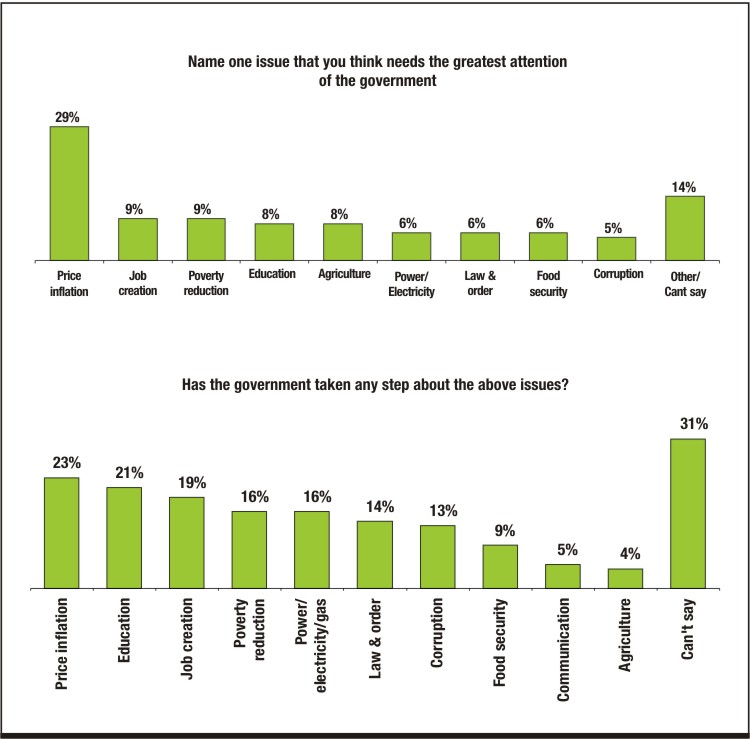
Some other issues
The respondents were asked about their opinions on daylight saving programme and 34 percent said it was a good initiative of the government while 33 percent said it was not a good decision. Twenty five percent said it was a good thing, but it was time to revert back to the old clock (the questions were asked before the government's decision to readjust the clock on December 31).
A question was asked to take opinions on what the respondents think about changing names of establishments and organisations once a new government takes over. An overwhelming eighty one percent disapprove of the practice.
Asked what is their view of political sycophancy, 87 percent voiced very harsh views against such practice and said it should be stopped.
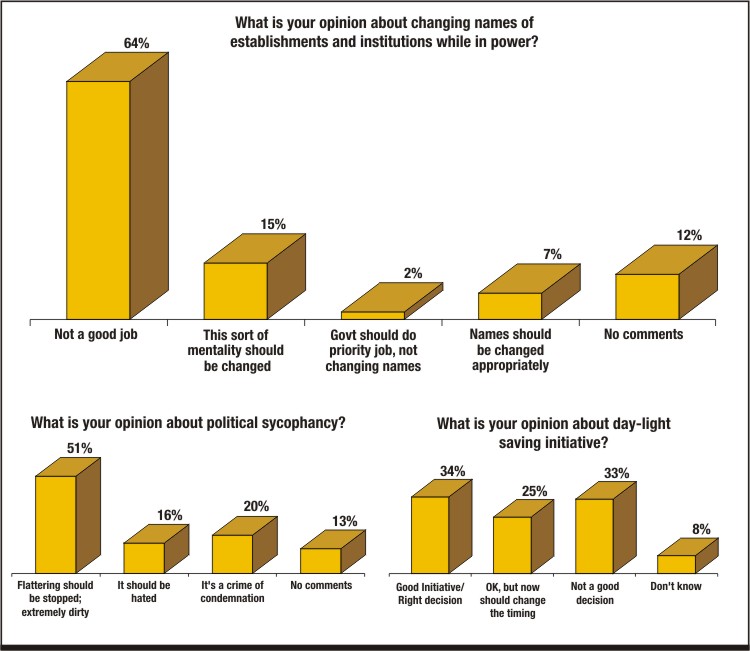
Critical of opposition's role
The role of the opposition in the last one year was seen by the respondents more critically than favourably. Moreover a large number of respondents said they want the opposition to join the parliament.
Thirty nine percent said they are dissatisfied by the opposition's negative role. Thirty percent find the opposition playing a positive role and are satisfied. Another 15 percent find the opposition's role remaining just as before. Eighteen percent said they have no idea, which in fact goes to the opposition's discredit.
Chittagong people are the most satisfied with the opposition (41 percent), and Rajshahi and Sylhet residents are the least satisfied (21 percent each). On the other hand, Rajshahi people are the most dissatisfied (46 percent) with the opposition while Barisal residents are the least dissatisfied (19 percent).
Seventy five percent respondents said they want the opposition to join the parliament and only four percent endorse the boycott. Twelve percent said they have no comment on the issue.
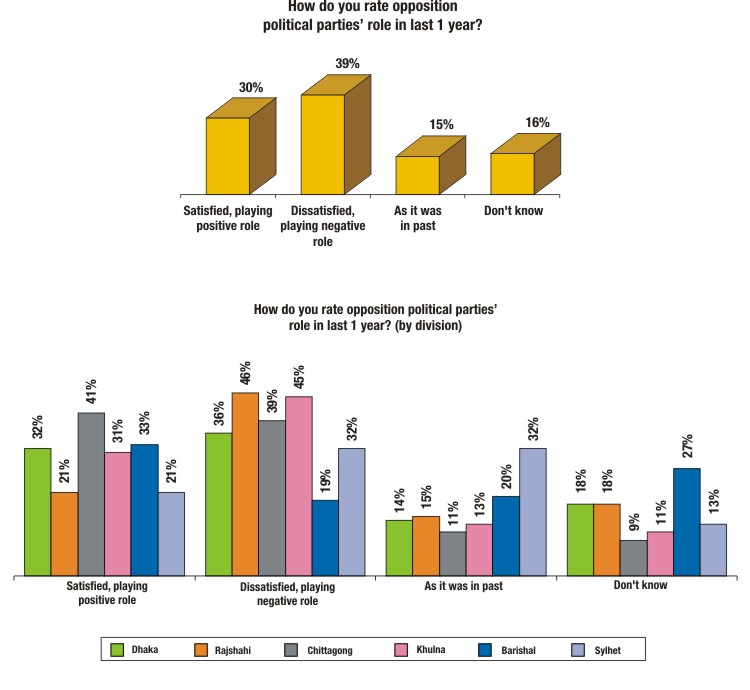
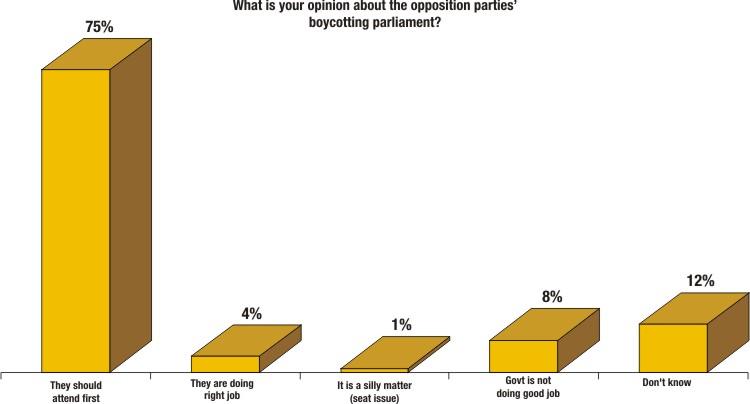
Critical of BCL
The respondents were asked what the government should do about Bangladesh Chhatra League in view of the organisation's recent violent activities on campuses, 31 percent said it must be controlled strictly, and 3 percent talked about stern actions. A large 51 percent said they have no idea about how to control BCL.
But 62 percent respondents think the government is trying to stop violence in educational institutions. Twelve percent think the government has failed in this job while 1 percent think it will never succeed in the task. A large 25 percent said they have no idea about the government's role in this regard.
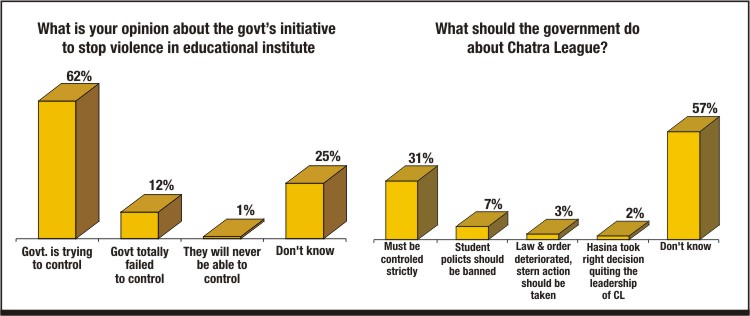
Strengths and weaknesses
The survey asked what the respondents consider to be the most successful and weak points of the government. On both counts law and order and price control came out at the top, which means that the government's success areas has been almost negated by a slightly lower percent of the respondents.
Twenty six percent said law and order, and 19 percent said price control is the area of success. However, other segments of respondents found commodity price (16 percent) and law and order (12 percent) as not properly handled in the last one year.
One interesting point that surfaced through these questions is that neither the government could showcase its successes properly nor the opposition highlighted the government's failures, as a large section of the respondents felt they have no idea about the government's successes and failures. Thirty nine percent said they have no clear idea about the government's successes, and 49 percent said the same about the weaknesses.
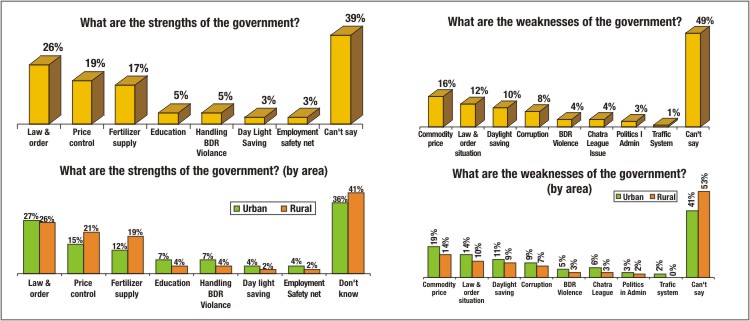
Continue
|

